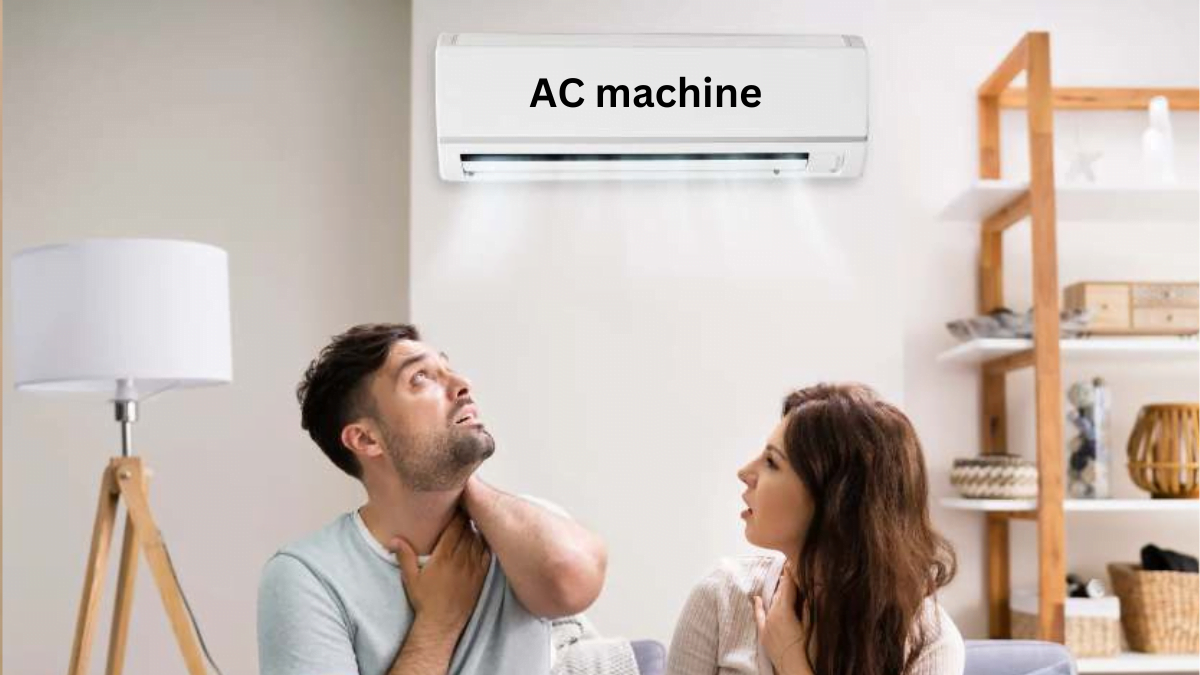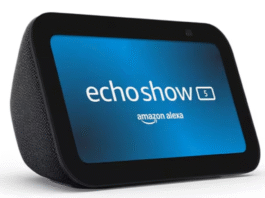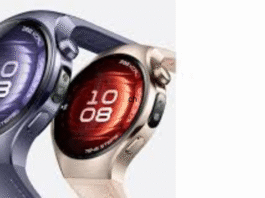Introduction
All About Air Conditioners: Your Complete Guide to Efficient, Comfortable Cooling
Air conditioners have become essential in today’s world, providing relief during hot seasons and making indoor environments more comfortable and livable. With the right air conditioner unit, you can achieve both cooling efficiency and energy savings. This guide covers everything from choosing the right air conditioner to maintaining it and maximizing its lifespan.
Types of Air Conditioners – Choosing the Best Fit for Your Space
Air conditioners come in various types, each designed for different spaces, needs, and budgets. Choosing the right one can significantly impact the comfort and energy efficiency of your space.
- Central Air Conditioning: Ideal for large homes or office spaces, central air conditioner systems cool entire buildings by circulating cool air through ducts. They offer powerful cooling and are controlled via a central thermostat, providing consistent comfort.
- Window Units: Popular for cooling individual rooms, window air conditioners are cost-effective and easy to install. They’re ideal for smaller spaces and are generally more affordable than central systems.
- Portable Air Conditioners: Portable units are easy to move and don’t require installation, making them a good choice for renters or people who want a flexible cooling option. They’re best suited for small rooms or areas with specific cooling needs.
- Ductless Mini-Split Systems: These systems offer the power of central air without the need for ducts. They consist of an outdoor compressor and one or more indoor units, making them energy-efficient and perfect for homes where installing ductwork is impractical.
- Hybrid Air Conditioners: These systems alternate between using electricity and other fuel sources, such as natural gas, depending on the temperature. Hybrid air conditioners can be cost-effective and environmentally friendly.
Each type has its own advantages, so understanding your specific cooling needs is essential for making the right choice.
Maintenance Tips for Optimal Air Conditioner Performance

Proper maintenance not only extends the lifespan of your air conditioner but also ensures it runs efficiently, keeping your energy bills down and your home comfortable.
- Clean or Replace Filters Regularly: Dirty filters reduce airflow and make your AC work harder to cool the space, leading to higher energy consumption. Clean or replace filters every month or two during the cooling season. If you live in a dusty area or have pets, this may need to be done more frequently.
- Check the Thermostat Settings: Ensure your thermostat is set to a comfortable temperature when you’re home and a slightly higher temperature when you’re away. Smart thermostats can automate this, helping you save energy without compromising comfort.
- Clear the Area Around the Outdoor Unit: Leaves, dirt, and debris can obstruct the outdoor unit’s airflow. Regularly clear the area around it to ensure optimal performance and avoid overheating issues.
- Clean the Coils: Over time, air conditioner coils can accumulate dirt, which reduces their ability to absorb heat. Clean the coils annually or hire a professional to keep them in top condition.
- Inspect the Fins and Straighten as Needed: The aluminum fins on the evaporator and condenser coils can bend easily, blocking airflow. Use a fin comb to straighten them out or consult a professional if needed.
Routine maintenance can prevent many common air conditioner issues and keep your system running smoothly throughout the cooling season.
Improving Energy Efficiency with Your Air Conditioner
Energy efficiency is a critical consideration for any air conditioner unit, as cooling your home can be one of the largest energy expenses in the summer months. Fortunately, there are several ways to make your AC run more efficiently.
- Choose the Right Size AC for Your Space: An oversized unit will cool the room quickly but will cycle on and off, wasting energy and causing temperature fluctuations. Conversely, an undersized unit will struggle to cool the room, running continuously and consuming more power.
- Set a Reasonable Temperature: Keep your thermostat set at around 78°F when you’re home and 85°F when you’re away. Every degree you raise the thermostat can save around 3-5% on cooling costs.
- Use Fans in Conjunction with Your AC: Ceiling fans and portable fans can improve air circulation, allowing you to set your thermostat a few degrees higher without sacrificing comfort.
- Seal and Insulate Your Home: Drafts and poorly insulated spaces allow cool air to escape, causing your air conditioner to work harder. Ensure windows, doors, and ducts are sealed, and consider upgrading your home insulation.
- Close Blinds and Curtains: Sunlight can significantly increase the temperature indoors. Closing blinds and curtains during the day can reduce the load on your air conditioner and keep rooms cooler naturally.
These tips not only help you stay comfortable but also reduce energy consumption, making your AC usage more eco-friendly and cost-effective.
When to Replace Your Air Conditioner – Signs It’s Time for an Upgrade
No Air conditioner unit lasts forever. Knowing when to replace it can save you from unexpected breakdowns and higher energy bills. Here are some signs it might be time for an upgrade.
- Frequent Repairs: If you’re constantly calling for repairs, it might be more cost-effective to invest in a new unit. The costs of frequent repairs can add up quickly, especially for older units.
- Decreased Cooling Performance: If your Air conditioner struggles to cool your space or leaves some rooms warmer than others, it may be nearing the end of its lifespan.
- Increased Energy Bills: Older units are less efficient and may cause a noticeable spike in your energy bills. Newer models often have better SEER (Seasonal Energy Efficiency Ratio) ratings, meaning they use energy more efficiently.
- Age of the Unit: Most air conditioners last around 10-15 years with proper maintenance. If yours is reaching that age, it may be time to start planning for a replacement.
- Using Freon (R-22) as Refrigerant: R-22 has been phased out due to environmental concerns, and units using this refrigerant can be more costly to maintain. Newer units use eco-friendly refrigerants like R-410A, which are better for the environment.
Replacing an outdated or inefficient Air conditioner can result in long-term savings, better cooling performance, and a reduced carbon footprint.
Features to Consider When Buying a New Air Conditioner
Investing in a new air conditioner involves more than just picking the cheapest option. Here are some essential features to consider:
- Cooling Capacity: Measured in British Thermal Units (BTUs), the cooling capacity should match the size of your space. A unit with too little capacity will struggle, while one with too much will cycle too frequently, leading to inefficiencies.
- Energy Efficiency Rating: Look for units with a high SEER rating, as these are more energy-efficient. ENERGY STAR-certified units meet specific efficiency standards, saving you money in the long run.
- Noise Level: Some AC units can be quite loud, especially window and portable models. Look for models with lower decibel ratings if quiet operation is a priority.
- Programmable Thermostats and Smart Features: Many modern Air conditioners offer smart features like Wi-Fi connectivity, allowing you to control the unit remotely. Programmable thermostats can also automatically adjust the temperature, helping you save energy.
- Eco-Friendly Refrigerants: As mentioned, refrigerants like R-410A are more environmentally friendly than older options like R-22. Check the refrigerant type if eco-friendliness is a concern.
Carefully considering these features ensures that you select an Air conditioner that meets your cooling needs while providing energy efficiency and durability.
Troubleshooting Common Air Conditioner Issues
Even with proper maintenance, AC units can encounter problems. Knowing how to troubleshoot common issues can save you time and money.
- AC Isn’t Cooling Properly: Check the thermostat settings first. Ensure it’s set to “cool” and that the temperature is set lower than the room temperature. Also, check if the filters and coils are clean and replace them if needed.
- AC Won’t Turn On: Check the power source, circuit breaker, and ensure the thermostat is working properly. Sometimes, a tripped breaker or a blown fuse could be the culprit.
- Water Leaking Around the Unit: This may be due to a clogged condensate drain. Cleaning it can often solve the issue. Regularly inspecting the condensate line can prevent future clogs.
- Unusual Noises: Strange sounds can indicate a range of issues, from loose parts to problems with the fan motor. For safety, consult a professional if you hear grinding, squealing, or rattling sounds.
- Unpleasant Odors: Musty odors could indicate mold growth within the unit, while burning smells may be a sign of wiring issues. Turn off the Air conditioner and address these problems immediately to avoid further damage or health risks.
While DIY troubleshooting can resolve minor issues, always contact a professional for complex repairs to prevent potential damage to the unit.
Enhancing Indoor Air Quality with Your Air Conditioner
Air conditioners don’t just cool the air; they can also improve indoor air quality when used correctly.
- Use Quality Filters: Higher-quality filters trap more pollutants, reducing allergens, dust, and pet dander in the air. HEPA filters, for example, can capture microscopic particles, making them ideal for allergy sufferers.
- Control Humidity: Air conditioner units help control indoor humidity, which can deter mold growth and create a more comfortable environment. Dehumidifiers are also available as a separate feature in some Air conditioner units.
- Regularly Clean Vents and Ducts: Dust and allergens can accumulate in air vents and ducts, reducing the quality of the air being circulated. Regular cleaning can prevent this buildup, keeping the air cleaner and fresher.
- Air Purification Technology: Some modern air conditioners include built-in air purifiers or ionizers that further improve indoor air quality. This can be a worthwhile feature for those in urban areas or with respiratory sensitivities.
By focusing on air quality, you can create a healthier indoor environment while enjoying the benefits of a cooler space.
The Future of Air Conditioning – Innovations and Trends
The future of air conditioning is focused on efficiency, sustainability, and smart technology. Here are a few innovations that could shape the next generation of air conditioners.
- Smart AC Systems: The rise of smart homes has influenced Air conditioner technology, with units now being integrated with IoT (Internet of Things) capabilities. This allows users to control their Air conditioner units via apps, remotely monitor performance, and receive maintenance alerts.
- Energy-Saving Technology: Advances in energy-efficient compressors, variable speed fans, and eco-friendly refrigerants aim to reduce the carbon footprint of air conditioning systems.
- Solar-Powered ACs: Solar-powered air conditioners are becoming more popular, as they offer a renewable energy option for cooling. These systems harness solar energy to run, making them ideal for sustainable homes and reducing reliance on the grid.
- Compact and Portable Designs: With space-saving in mind, newer models are being designed to be more compact and portable, making them suitable for small homes and apartments.
These trends highlight the industry’s efforts to create sustainable and technologically advanced cooling solutions, catering to modern needs and environmental concerns.
As the summer sun beats down, your air conditioner becomes your best ally, offering respite from the sweltering heat. However, like any other appliance, your AC requires regular TLC to keep it running smoothly. While some tasks are best left to the professionals, there are plenty of simple steps homeowners can take to maintain their central or window-mounted central air units. Not only does proper maintenance reduce energy consumption, but it also extends the lifespan of your cooling system, ultimately saving you money in the long run.
The Importance of AC Maintenance for Dallas Homeowners

Air conditioners need regular maintenance to perform at their best. With proper care, your cooling equipment will operate more efficiently and reliably for years to come.
Why AC Maintenance Matters
While some aspects of machine maintenance require professional expertise, there are several tasks homeowners can tackle on their own. Here are some easy heat pump tips to keep your machine running smoothly:
- Dust Off: Start by giving your machine thorough dusting: Dust and debris can accumulate on the exterior of the unit, hindering airflow and reducing efficiency. Use a soft cloth to gently wipe down the surfaces, paying special attention to vents and grilles.
- Uncover and Discover: Next, remove the top cover of your cooling unit to access the interior components. You may be surprised by the amount of dirt and grime that has accumulated inside. Carefully clean the area around the coil and remove any debris that could impede airflow.
- Soap and Soak: Mix liquid soap with lukewarm water and soak the mesh filter in the solution. This will help loosen dirt and grease, making it easier to remove. Use a brush to gently scrub the filter, then rinse it thoroughly with clean water. Allow the filter to dry completely before reinstalling it.
- Wipe Down: With the filter clean, use a clean cloth to wipe down the inner components of the cooling unit. Be sure to remove any dirt or debris that may have been collected on the surfaces. If necessary, use a vacuum cleaner with a brush attachment to remove stubborn dirt and dust.
- Change the Filters: Don’t forget to replace the filters in your heat pump unit regularly. Clogged filters restrict airflow, reducing efficiency and increasing energy consumption. Check the filters every month and replace them as needed, typically every 1-3 months depending on usage.
- Check the Thermostat: Ensure that your thermostat is set to the appropriate temperature and mode. Consider investing in a programmable thermostat, which allows you to adjust settings based on your schedule and preferences.
- Extend the Life of Your Air Conditioner:
Without regular maintenance, your Air conditioner loses efficiency over time, about 5% per year. Neglecting maintenance means spending more for less efficiency. Regular servicing allows technicians to catch and fix minor issues early, keeping your central air running optimally and prolonging its lifespan.
- Lower Energy Costs
A well-maintained central air operates more efficiently, translating to lower energy bills. By keeping your system in top condition, you ensure it doesn’t have to work harder than necessary to cool your home, saving you money in the process.
- Increase System Efficiency
Addressing minor issues through maintenance enhances your system’s efficiency. By eliminating barriers to optimal performance, your central air can cool your home effectively while consuming less energy, ultimately reducing your utility bills.
- Preserve Your Warranty
Many warranties require regular maintenance to remain valid, particularly during the initial years. Ignoring maintenance requirements can void your warranty, leaving you responsible for any future repairs that could have been covered.
- Prevent Extensive Repair Costs
Regular maintenance helps identify and resolve small issues before they escalate into major problems. By addressing issues early, you can avoid costly repairs or even the need for a complete system replacement.
Running smoothly and efficiently for years to come. Don’t wait until the peak of summer to address maintenance issues—take proactive steps to ensure your home stays cool and comfortable all year round.
Simple Steps for DIY AC Maintenance
While some maintenance tasks require professional expertise, there are several simple steps homeowners can take to keep their central air units in top condition:
- Dust Off: Regularly dust the exterior of your unit to prevent airflow obstruction.
- Uncover and Discover: Remove the top cover of your unit to clean the interior components and remove debris.
- Soap and Soak: Clean the mesh filter with a soap and water solution to remove dirt and grease.
- Wipe Down: Use a cloth to wipe down inner components, ensuring they’re free of dirt and debris.
- Change the Filters: Replace filters regularly to maintain airflow and efficiency.
- Check the Thermostat: Ensure your thermostat is set correctly for optimal cooling.
When to Call in the Pros
While DIY maintenance is beneficial, certain issues require professional attention:
- Strange noises or odors
- Reduced cooling capacity
- Frequent cycling on and off
- Leaks or electrical malfunctions
Preventive Measures for Long-Term Efficiency
In addition to regular maintenance, consider these preventive measures:
- Inform your electricity supplier of multiple cooling units to prevent circuit overloading.
- Choose an energy-efficient unit with a high SEER rating.
- Keep doors and windows closed while the central air is running.
- Avoid strong-smelling substances near the unit.
Conclusion
Your AC is more than just a luxury—it’s an essential component of your home comfort system. With regular maintenance and care, you can ensure it operates at peak performance, keeping you cool and comfortable throughout the hottest months. By following these maintenance tips and knowing when to call in the pros, you can enjoy reliable cooling and lower energy bills for years to come.”
Air conditioners play a vital role in keeping indoor environments comfortable. By choosing the right Air conditioner unit, maintaining it well, and adopting energy-saving practices, you can enhance its efficiency, extend its lifespan, and enjoy a more comfortable home or office environment. As technology advances, the future of air conditioning looks promising with more eco-friendly, energy-efficient, and convenient options on the horizon.
Related stories:
Maintaining Your Refrigerator: 10 Tips for Optimal Performance
Discover more from currentnewschannel.com
Subscribe to get the latest posts sent to your email.













